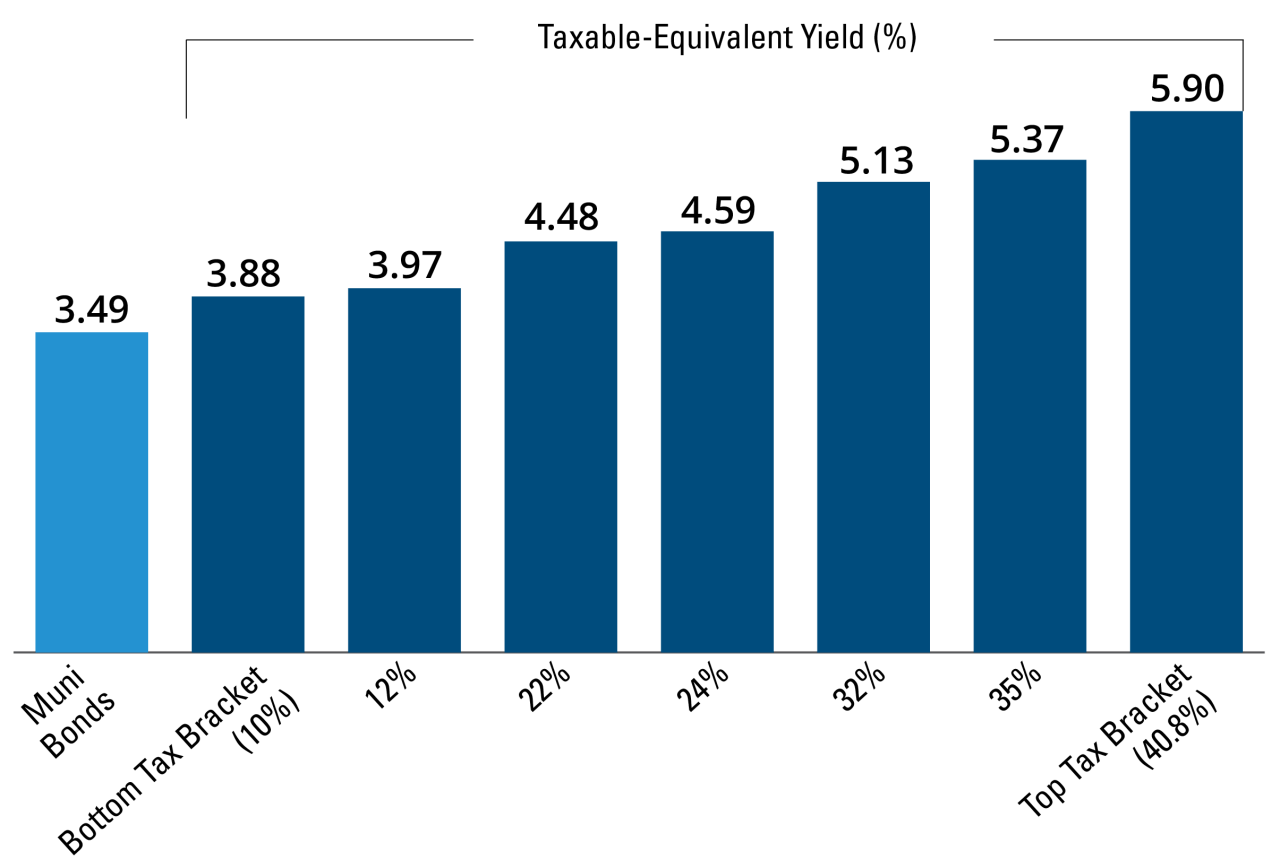Municipal, or “muni,” bonds are issued by states or local governments to finance public works and infrastructure projects. What makes munis a unique fixed-income instrument is that they’re generally exempt from federal taxes and often exempt from state and local taxes, although investors may be subject to the federal Alternative Minimum Tax.
This potential advantage is more pronounced in higher tax brackets, which is why muni bonds have earned a reputation as an investment geared toward wealthier individuals.
But as we see it, muni bonds aren’t just an investment option for investors in the highest tax brackets. Here are five reasons investors may want to consider investing in muni bonds:
1. Muni bonds tend to be high-quality investments. The five-year cumulative default rate for muni bonds was only 0.08% from 1970-2022.1 Global corporate bonds defaulted at 6.9% over the same time frame.1 What’s more, many municipalities were bolstered by direct federal aid during the pandemic.
2. Munis currently have a favorable supply/demand balance. In 2023, local and state governments issued fewer new muni bonds because the Federal Reserve was raising interest rates to fight inflation. New issuance is expected to stay somewhat depressed in 2024 for the same reason. This could be a boon for the asset class: Investors will still want ways to help reduce their taxes, but the muni supply may be tight.
3. Muni bonds can help diversify your portfolio. Muni bonds are domestically focused, while many stocks have global exposure and are more sensitive to macroeconomic developments.






